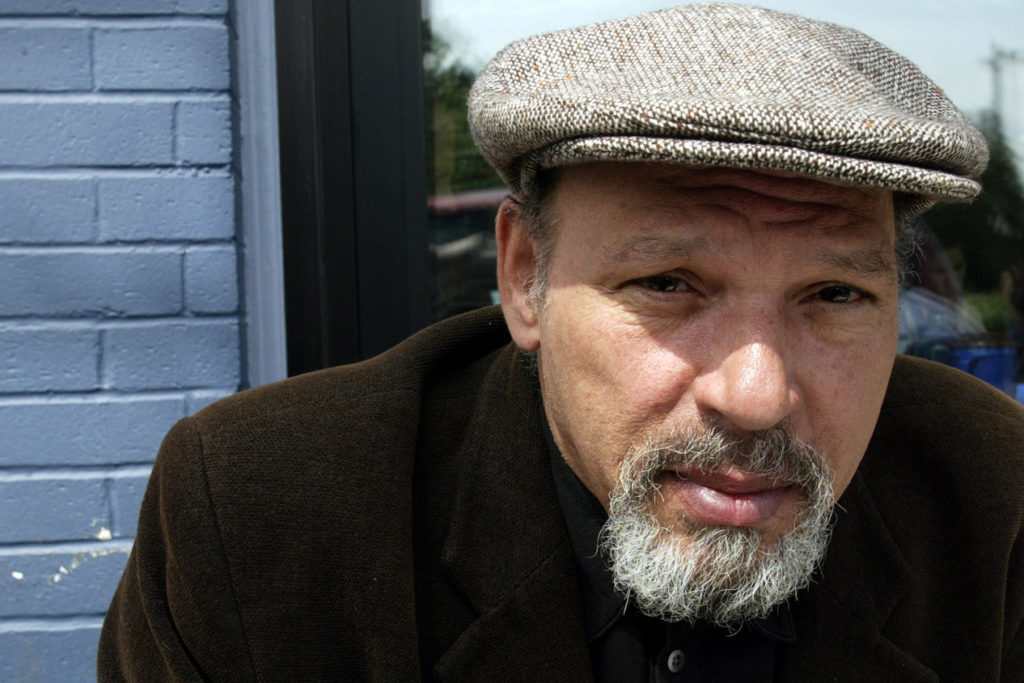. . . what happened, of course, was that I was writing a play set in the 1940’s that was supposed to be somehow representative of black American life, and I didn’t have any women in there. And I knew that wasn’t going to work.
A novelist writes a novel, and people read it. But reading is a solitary act. While it may elicit a varied and personal response, the communal nature of the audience is like having five hundred people read your novel and respond to it at the same time. I find that thrilling.
All art is political in the sense that it serves someone’s politics.
All of art is a search for ways of being, of living life more fully.
All you need in the world is love and laughter. That’s all anybody needs. To have love in one hand and laughter in the other.
As soon as white folks say a play’s good, the theater is jammed with blacks and whites.
Between speeches and awards, you can find something to do every other week. It’s hard to write. Your focus gets splintered. Once you put one thing in your calendar, that month is gone.
Blacks have traditionally had to operate in a situation where whites have set themselves up as the custodians of the black experience.
Confront the dark parts of yourself, and work to banish them with illumination and forgiveness. Your willingness to wrestle with your demons will cause your angels to sing.
Death ain’t nothing but a fastball on the outside corner.
For me, the original play becomes an historical document: This is where I was when I wrote it, and I have to move on now to something else.
From Borges, those wonderful gaucho stories from which I learned that you can be specific as to a time and place and culture and still have the work resonate with the universal themes of love, honor, duty, betrayal, etc. From Amiri Baraka, I learned that all art is political, although I don’t write political plays.
From Romare Bearden I learned that the fullness and richness of everyday life can be rendered without compromise or sentimentality.
Have a belief in yourself that is bigger than anyone’s disbelief.
I ain’t never found no place for me to fit. Seem like all I do is start over. It ain’t nothing to find no starting place in the world. You just start from where you find yourself.
I am not a historian. I happen to think that the content of my mother’s life – her myths, her superstitions, her prayers, the contents of her pantry, the smell of her kitchen, the song that escaped from her sometimes parched lips, her thoughtful repose and pregnant laughter – are all worthy of art.
I been with strangers all day and they treated me like family. I come in here to family and you treat me like a stranger.
I believe in the American theatre. I believe in its power to inform about the human condition, its power to heal … its power to uncover the truths we wrestle from uncertain and sometimes unyielding realities.
I cried a river of tears but he was too heavy to float on them. So I dragged him with me these years across an ocean.
I don’t go by what the law say. The law’s liable to say anything. I go by if it’s right or not. It don’t matter what the law say. I take and look at it for myself.
I don’t look at our society today too much. My focus is still in the past, and part of the reason is because what I do – the wellspring of art, or what I do – l get from the blues. So I listen to the music of a particular period that I’m working on, and I think inside the music is clues to what is happening with the people.
I don’t write for a particular audience.
I don’t write for a particular audience. I work as an artist, and I think the audience of one, which is the self, and I have to satisfy myself as an artist. So I always say that I write for the same people that Picasso painted for. I think he painted for himself.
I don’t write particularly to effect social change. I believe writing can do that, but that’s not why I write.
I done learned my mistake and learned to do what’s right by it. You still trying to get something for nothing. Life don’t owe you nothing. You owe it to yourself. – Troy –
I dont write particularly to effect social change. I believe writing can do that, but thats not why I write.
I dropped out of school when I was 15 years old. I dropped out because I guess I wasn’t getting anything out of my investment in the school.
I first got involved in theater in 1968, at the height of a social tumult. I was a poet.
I found out life’s hard but it ain’t impossible….
I had always been fascinated with Napoleon because he was a self-made emperor; Victor Hugo said, ‘Napoleon’s will to power,’ and it was the title of my paper. And I submitted it to my teacher, and he didn’t think I had written it. And he wanted me to explain it to him.
I know some things when I start. I know, let’s say, that the play is going to be a 1970s or a 1930s play, and it’s going to be about a piano, but that’s it. I slowly discover who the characters are as I go along.
I once wrote a short story called ‘The Best Blues Singer in the World,’ and it went like this: ‘The streets that Balboa walked were his own private ocean, and Balboa was drowning.’ End of story. That says it all. Nothing else to say. I’ve been rewriting that same story over and over again. All my plays are rewriting that same story.
I started writing – I began my career at the age of 20, on April 1st, 1965, when… My sister was going to Fordham University at the time, and she wrote me and asked me if I’d write her a paper. She needed a paper on two poets. And I picked Robert Frost and Carl Sandburg, and I wrote her paper, and she sent me $20. $20 in 1965 was a lot of money.
I think all in all, one thing a lot of plays seem to be saying is that we need to, as black Americans, to make a connection with our past in order to determine the kind of future we’re going to have. In other words, we simply need to know who we are in relation to our historical presence in America.
I think it was the ability of the theater to communicate ideas and extol virtues that drew me to it. And also, I was, and remain, fascinated by the idea of an audience as a community of people who gather willingly to bear witness.
I think that as a playwright, if I detail that environment, then I’m taking away something from them [designers]. I’m taking away their creativity and their ability to have input themselves, not just to follow what the playwright has written. So I do a minimum set description and let the designers create within that.
I think the play offers (white Americans) a different way to look at black Americans For instance, in ‘Fences’ they see a garbageman, a person they don’t really look at, although they see a garbageman every day. By looking at Troy’s life, white people find out that the content of this black garbageman’s life is affected by the same things- love, honor, beauty, betrayal, duty. Recognizing that these things are as much part of his life as theirs can affect how they think about and deal with black people in their lives.
I work as an artist, and I think the audience of one, which is the self, and I have to satisfy myself as an artist. So I always say that I write for the same people that Picasso painted for. I think he painted for himself.
I write for myself and my goal is bringing that world and that experience of black Americans to life on the stage and giving it a space there.
I write for myself, and my goal is bringing that world and that experience of black Americans to life on the stage and giving it a space there.
I’m a De Niro fan. I went eleven years without seeing a movie; the last one before that, February 1980, was De Niro and Scorsese in ‘Raging Bull,’ and when I went back, it was ‘Cape Fear,’ with De Niro and Scorsese. I picked up right where I left off at.
I’m trying to take culture and put it onstage, demonstrate it is capable of sustaining you. There is no idea that can’t be contained by life: Asian life, European life, certainly black life. My plays are about love, honor, duty, betrayal – things humans have written about since the beginning of time.
I’ve never seen ‘Seinfeld’, never seen ‘The Cosby Show’; I just don’t watch it. I saw half of ‘Oprah’ one time. I’d rather read.
I’ve seen some terrible plays, but I generally enjoy myself. One play I walked out of, I have a tremendous respect for the author. That was Robert Wilson, something called ‘Network,’ which consisted of Wilson sitting on a bunk, the dialogue of the movie ‘Network’ looped in while a chair on a rope went up and down.
If you want to support a writer, produce the first five plays he writes.
In 1977, I wrote a series of poems about a character, Black Bart, a former cattle rustler-turned-alchemist. A good friend, Claude Purdy, who is a stage director, suggested I turn the poems into a play.
In 1980 I sent a play, ‘Jitney,’ to the Playwrights’ Center in Minneapolis, won a Jerome Fellowship, and found myself sitting in a room with sixteen playwrights. I remember looking around and thinking that since I was sitting there, I must be a playwright, too.
It was early on in 1965 when I wrote some of my first poems. I sent a poem to ‘Harper’s’ magazine because they paid a dollar a line. I had an eighteen-line poem, and just as I was putting it into the envelope, I stopped and decided to make it a thirty-six-line poem. It seemed like the poem came back the next day: no letter, nothing.
Jazz in itself is not struggling. That is, the music itself is not struggling… It’s the attitude that’s in trouble. My plays insist that we should not forget or toss away our history.
Land [is] the only thing God ain’t making no more of.
Life don’t owe you nothing.
Most of black America is in housing projects, without jobs, living on welfare. And this is not the case in ‘The Cosby Show,’ because all the values in that household are strictly what I would call white American values.
My hero when I was 14 was Sonny Liston. No matter what kinds of problems you were having with your parents or at school, whatever, Sonny Liston would go and knock guys out, and that made it all right.
My influences have been what I call my four Bs – the primary one being the blues, then Borges, Baraka, and Bearden.
So somehow, things that seem extraneous to the play in reality are not. The scene lasts 37 minutes, and you only need 12 minutes of that for the plot. But if you pull the rest of it out, it’s not my play.
Style ain’t nothing but keeping the same idea from beginning to end. Everybody got it.
Suffice it to say, I’m not poor.
The blues are important primarily because they contain the cultural expression and the cultural response to blacks in America and to the situation that they find themselves in. And contained in the blues is a philosophical system at work. And as part of the oral tradition, this is a way of passing along information.
The details of our struggle to survive and prosper, in what has been a difficult and sometimes bitter relationship with a system of laws and practices that deny us access to the tools necessary for productive and industrious life, are available to any serious student of history or sociology.
The director works as an interpretive artist, but he’s still an artist, so you also have to give him room to create and to put his vision of the play or his translation or interpretation of the material on the stage.
The simpler you say it, the more eloquent it is.
There are always and only two trains running. There is life and there is death. Each of us rides them both. To live life with dignity, to celebrate and accept responsibility for your presence in the world is all that can be asked of anyone.
There’s no idea in the world that is not contained by black life. I could write forever about the black experience in America.
Use the pain as fuel, as a reminder of your strength.
We were land-based agrarian people from Africa. We were uprooted from Africa, and we spent 200 years developing our culture as black Americans. And then we left the South. We uprooted ourselves and attempted to transplant this culture to the pavements of the industrialized North. And it was a transplant that did not take. I think if we had stayed in the South, we would have been a stronger people. And because the connection between the South of the 20’s, 30’s and 40’s has been broken, it’s very difficult to understand who we are.
What comes forth from you as an artist cannot be controlled. But you have responsibilities as a global citizen. Your history dictates your duty. And by writing about black people, you are not limiting yourself. The experiences of African-Americans are as wide open as God’s closet.
What do you do with your legacy, and how do you best put it to use?
When I first started writing plays I couldn’t write good dialogue because I didn’t respect how black people talked. I thought that in order to make art out of their dialogue I had to change it, make it into something different. Once I learned to value and respect my characters, I could really hear them. I let them start talking.
When the sins of our fathers visit us We do not have to play host. We can banish them with forgiveness As God, in his His Largeness and Laws.
You are responsible for the world that you live in.
You are responsible for the world that you live in. It is not government’s responsibility. It is not your school’s or your social club’s or your church’s or your neighbor’s or your fellow citizen’s. It is yours, utterly and singularly yours.
You get to the point where your demons, which are terrifying, get smaller and smaller and you get bigger and bigger.
You got to be right with yourself before you can be right with anybody else.
You got to take the crookeds with the straights. That’s what Papa used to say.
Your demons will cause your angels to sing. Use the pain as fuel.







